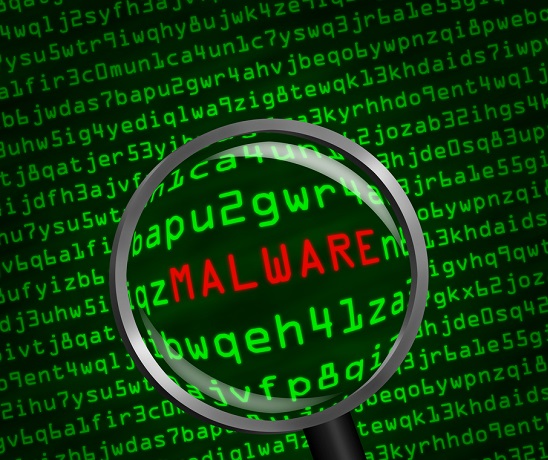
Each day, more of our activities are digitalized and bring with them large amounts of personal data that can be easily exploited for profit or influence by those who have the desire and the inclination to go against ethical norms. Cybersecurity refers to the protection of personal data stored digitally.
Your business might not need to worry about data security. What are the chances that your site will be targeted? Your website is unlikely to be among the most important companies in the world so anonymity is not an option.
Even though the likelihood of your company being the target of a data breach is low, there is still the possibility. And the potential consequences can be very dire.
Can you afford to take the chance?
Cyber security should be at the top of your priority list.
Customer Data is Very Sensitive
A website that tracks and collects data on regular customers will give the business an unprecedented view of the person’s daily life. This includes their eating habits, allergies, viewing habits, engagement, divorce, vulnerability, etc.
This data is often used to increase sales in the ecommerce industry. Promoting diapers for new parents and expensive gifts for couples celebrating their anniversaries is a good idea. Although it may seem intrusive and creepy, it is easy to ignore. Persuasion is not the worst thing in this world.
However, customer data that is exposed via a security flaw can be made even more dangerous. Blackmailers could threaten to release the data to the public if the business doesn’t pay them extortion money or use it directly to extract payments from the customers affected.
The fact that the data was leaked will do great damage to the company’s reputation. It is unlikely that anyone will continue to buy goods and services from businesses that have requested their data only for them to not keep it safe. The affected company will lose the trust of their clients.
Regulators are getting more strict
The General Data Protection Regulation (GDPR), which was implemented in the European Union (EU) on May 25, 2018, sets a high standard for EU businesses. Although there isn’t any such broad legislation in the USA, there are still a few reasons to be cautious.
First, the Federal Trade Commission (FTC), which is empowered under Section 5(a), Federal Trade Commission Act, has the power to ban “unfair or deceptive acts and practices in or affecting Commerce”. Their resources allow them to be the de facto protector for customer data.
Second, computer security issues will not be going away, no matter what is in the pipeline. The law will catch up eventually, even though it may seem slow at first. It’s impossible to predict when it will happen, and what retroactively might apply because that possibility cannot be eliminated. Therefore, it is important to act immediately.
 Cybersecurity Attacks Encouraged by Exposed Vulnerability
Cybersecurity Attacks Encouraged by Exposed Vulnerability
There are two basic types of security vulnerability. The first is the architectural type. This involves the software and protocols used. It includes compliance with the PCI standard for credit card transactions and use of SSL certificates (Secure Sockets Layer). These certificates verify website authenticity. Two-factor authentication protects user accounts.
You can work with a cybersecurity company to increase security. This option can be used to reduce the risk of architectural or outdated software.
There’s also the procedural type, which involves the steps taken by the business to ensure security on a daily and ongoing basis. This includes the use secure passwords, vetting employees, physical protection of data storage solutions and protection against bots, malware and other network intrusions.
A security-compliant web hosting solution is a good choice for businesses. Top platforms are known to invest in security. To combat open-source vulnerabilities, WordPress users should invest in a strong security system. Plugins are particularly susceptible to attacks. However, a strong platform will not make it less likely that weak passwords can be cracked.
Sharks can smell blood in the water and will move in for the easy catches. Although the business world is not as violent, the same principle applies. If people see that your security was breached they will quite sensibly ask if it can again be done.
Operation are becoming more cloud-based
The internet opened up new opportunities for businesses and created hybrid operational modes. Physical premises were linked to digital ones. A typical business would have offices or multiple offices and a website to encourage people to visit.
This helped to minimize the impact of cyberattacks. An online attack cannot compromise the security of physical stores with on-site locks or guards. This has all changed in recent years, both at the legal and operational levels, largely due to the enormous growth of e-commerce. It’s possible to operate a business without a physical presence.
Everything can be compromised by the internet, even entire businesses that exist (for all practical purposes) in the cloud. An entire company’s infrastructure could be destroyed by a malicious attack in seconds and then disappear forever. Although your business may be still office-based, it is important to know how things are moving.
It’s not rational to make your business vulnerable online for the reasons we have discussed. No matter how small or unknown your business may be, the risks are greater than the cost of creating safeguards.
Call SpartanTec, Inc. now if you’re looking for an IT company that can help protect your business against online threats.
SpartanTec, Inc.
Florence, SC 29501
843-396-8762
http://manageditservicesflorence.com
Serving: Myrtle Beach, North Myrtle Beach, Columbia, Wilmington, Fayetteville, Florence, Charleston

